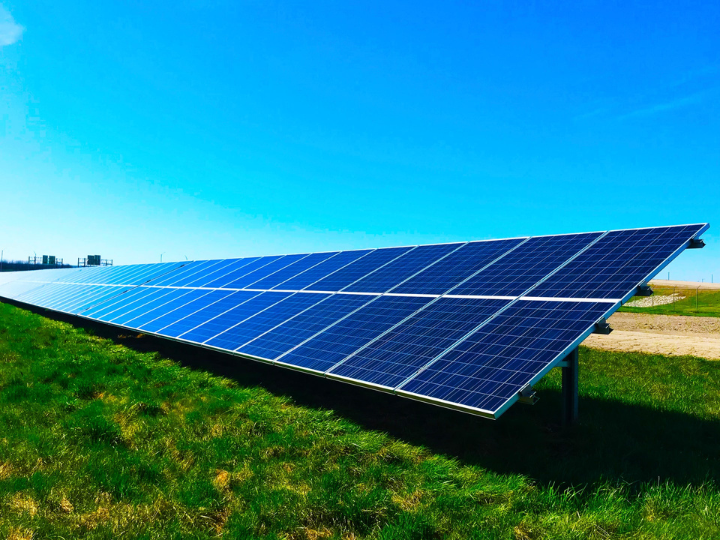by Mark Widmar*
The production of solar panels is virtually monopolised by China, which makes no secret of its disdain for democratic values. In the absence of a solar industrial strategy, Europe’s dependence on Chinese crystalline silicon solar supply chains will only deepen, warns Mark Widmar.
While two years of a pandemic cast an uncomfortable spotlight on global supply chain vulnerabilities, Vladimir Putin’s invasion of Ukraine set off alarm bells across the democratic world about the inherent risk of depending on adversarial nations for oil and gas supplies.
Amidst the hand-wringing about energy policies that built rather than reduced dependencies, leading voices called for a rethink of long-term energy security strategies and accelerated deployment of renewable energy. Christian Lindner, Germany’s finance minister, said, “Renewable energy releases us from dependence. That’s why renewable energy is freedom energy.”
While Lindner and other European leaders who have voiced similar positions are correct about the potential for democracies to use renewables to decouple themselves from autocracies that supply their fuel, it is not quite that simple.
Sunlight is a free fuel available to every 27 European Union nations, but the solar panels needed to convert photons into electrons are not free. In fact, the production of solar panels, and the value chain that makes it possible to produce them, is virtually monopolised by China, which makes no secret of its disdain for democratic values and harbours its own expansionist ambitions.
Today, eight in ten of the world’s largest solar manufacturers are tied to or manufactured in China. The country controls the bulk of the world’s production of polysilicon, the semiconductor that forms the basis for the majority of the world’s solar panels. It also controls 99% of crystalline silicon wafer and 80% of crystalline silicon cell production.
As a result, Europe, once a pioneer of the global solar industry, has vastly been reduced to relying on imports either directly from China or from Southeast Asian Belt and Road Initiative (BRI) countries, where Chinese manufacturers have set up low-value assembly plants, allegedly to circumvent anti-dumping duties. Crucially, while Europe had 6.75 gigawatts (GW) of solar panel assembly capacity in 2020, this capacity primarily relied on crystalline silicon wafers and cells from Chinese-controlled supply chains.
According to European Commission data, the EU spent €8 billion on imported solar panels in 2020, when it installed 18.2 gigawatts (GW) of new solar. China directly supplied 75% of the value of imported solar panels, and if you include BRI imports, the figure attributable to China-linked manufacturers likely surpasses 80%. The China Photovoltaic Industry Association reported that Europe accounted for 39% of the 98.5 GW of solar panels that China exported globally in 2021, or approximately 38 GW, well over the 25.9 GW actually installed across the EU during that year.
With the EU set to target 45 GW of new solar per year and an installed capacity of 600 GW by 2030 under the RePower EU plan, it appears that in the absence of a solar industrial strategy, Europe’s dependence on Chinese crystalline silicon solar supply chains will only deepen.
China’s dominance in solar manufacturing is no coincidence. Its solar companies have systematically dismantled international competition by dumping solar panels at low prices that are only possible because their manufacturers benefit from state subsidies and subsidised coal electricity – in violation of WTO rules. There are no altruistic motives in creating an artificial dependency on its solar industry. The Chinese government has essentially constructed yet another strategic vulnerability that it can exploit to its advantage. While it is Russian oil and gas today, it could be Chinese solar panels tomorrow.
The need to counter China’s dominance of solar manufacturing with a durable solar industrial policy is now more urgent than ever and does not seem lost on the European Commission. In fact, the European Commissioner for Energy, Kadri Simson, said earlier this year that the Commission would do “whatever it takes” to bring solar manufacturing back to Europe.
We already have the technology and innovation needed to rapidly build the EU’s manufacturing capacity. What’s missing is the combination of trade and industrial policy necessary to level the playing field for domestic manufacturers while incentivising manufacturing. Given the right policies, Europe can rapidly become self-sufficient in solar panels.
How rapidly? There are few better examples of how comprehensive policy, including trade safeguards, manufacturing incentives, and tangible clean energy goals, can spur domestic manufacturing than India.
Today, India is looking at 50 gigawatts of new module capacity expected to come online by 2025. That’s twice as much as the capacity of solar modules installed across all 27 EU member states in 2021.
This is a direct result of the effective combination of tariff and non-tariff barriers, the Indian government’s ‘Production Linked Incentive Scheme’ for domestic manufacturing, and government clean energy targets that would see 25 gigawatts of new capacity deployed every year until the end of this decade.
India’s approach is clearly working and is one that Europe and the US can learn from.
The bind that democracies find themselves in today is arguably the result of decades of consistently shortsighted decision-making that squandered opportunities to build self-reliance. As the aftermath of the Russian attack on Ukraine has demonstrated, building independent energy supply chains after the fact, in a hurry, is not a good option.
Europe’s leaders must face the risks and vulnerabilities in our renewable energy supply chains, act decisively, and ensure we do not repeat the same mistakes. Solar energy is “freedom energy” only if the supply of technology that converts photons into electrons renders democratic nations free to pursue policies that reflect our values and principles – without authoritarian influence.
*CEO of First Solar, the largest American solar manufacturer
**first published in: www.euractiv.com




 By: N. Peter Kramer
By: N. Peter Kramer
